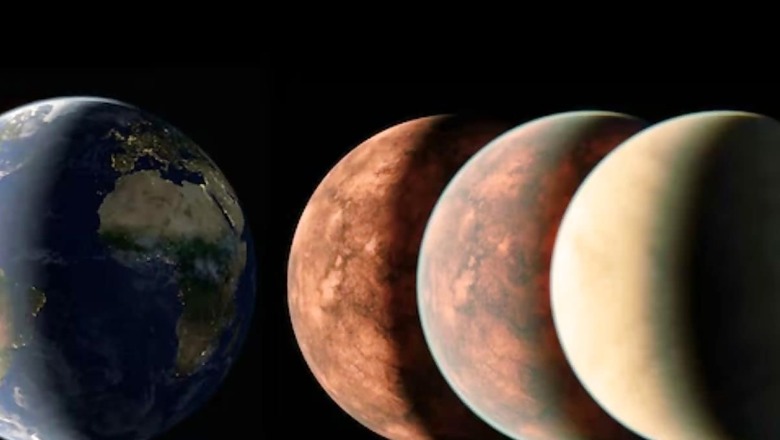
views
The mysteries of infinite space and the cosmos never cease to amaze us. Our current understanding of the universe, 95% of which is invisible to us, is woefully incomplete. There are many more mysteries to be unravelled; one of them is whether there is any other heavenly body in space that holds life like our earth does. Aliens and extraterrestrials have been part of fiction work for decades but there has never been any documented record of any other planet that can sustain life. But that might change now, after a significant discovery made recently. A new planet, that resembles Earth largely in size, has been discovered which scientists believe may sustain life.
The research was led by Larissa Palethorpe, a scientist from the University College of London, and Shishir Dholakia, an astronomer from the University of Southern Queensland, who collaborated with NASA to make the significant discovery. The planet has been named Gliese 12b and is the size of Earth. It is not very far from our galaxy too as it is just 40 light years away from Earth. Shishir Dholakia said that while it may not be possible to set foot on Gliese 12b anytime soon, the world’s largest telescopes can be pointed at it, which could give us more information on the planet.
Using NASA's TESS telescope and other facilities, astronomers discovered a new temperate, Earth-sized world that could unlock key questions about habitability and our solar system's evolution. Learn more about Gliese 12 b, which is well-suited for further study by @NASAWebb:… pic.twitter.com/Lkb8qC1v2T— NASA Astrobiology: Exploring Life in the Universe (@NASAAstrobio) May 24, 2024
This planet is revolving around its star at such proximity that there are only 13 days in a year. It is about a quarter of the size of the Sun, so it is also much colder than the sun. NASA and the two scientists believe that Gliese 12b may be a potential life-sustaining planet. “It could be at the right temperature for liquid water to pool on the surface…[that’s] important because we think planets are potentially habitable if they can have liquid water on them. And so in this great search for life that we’re undertaking we want to try to find potentially habitable planets, and this could be a good contender,” said Shishir Dholakia.




















Comments
0 comment